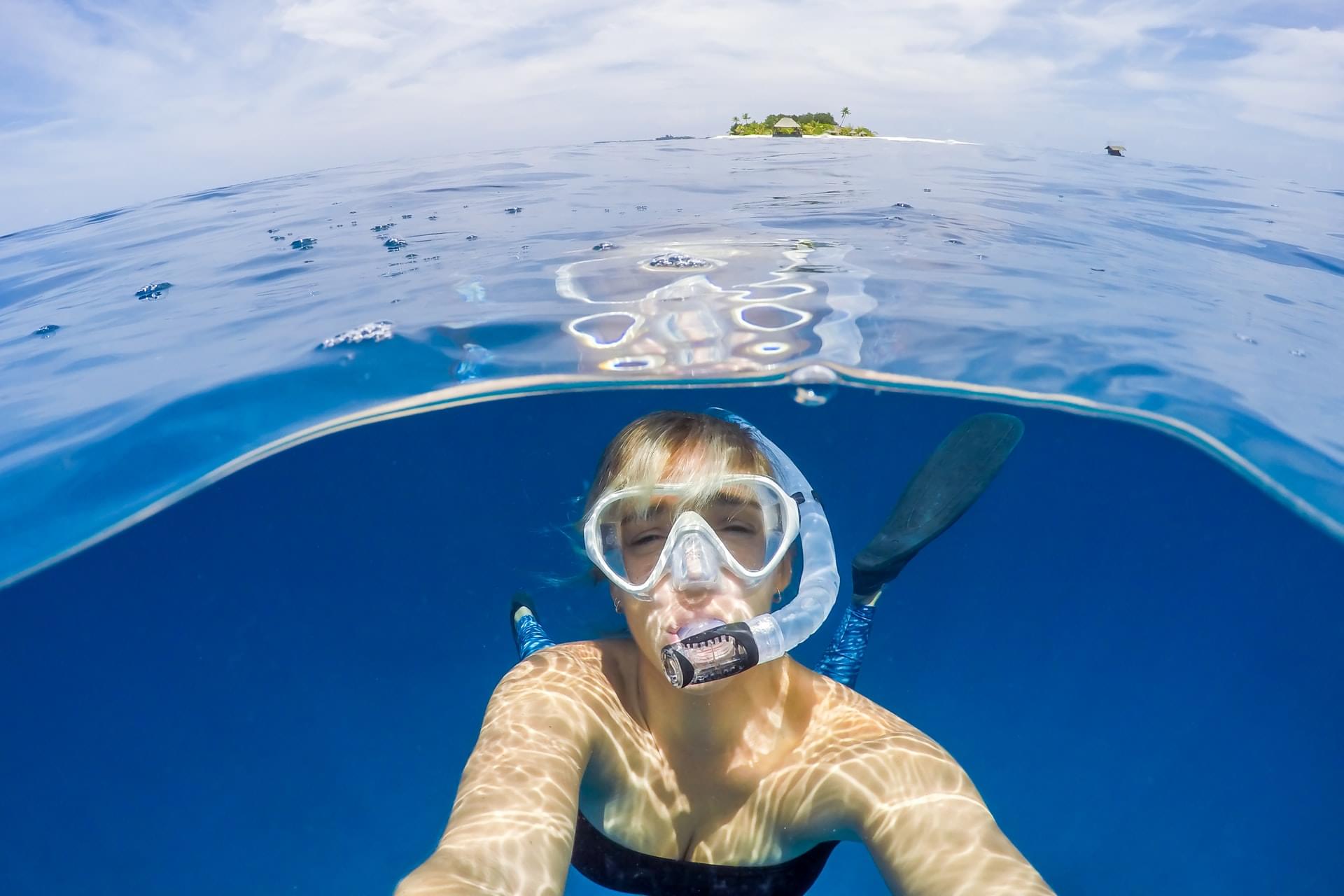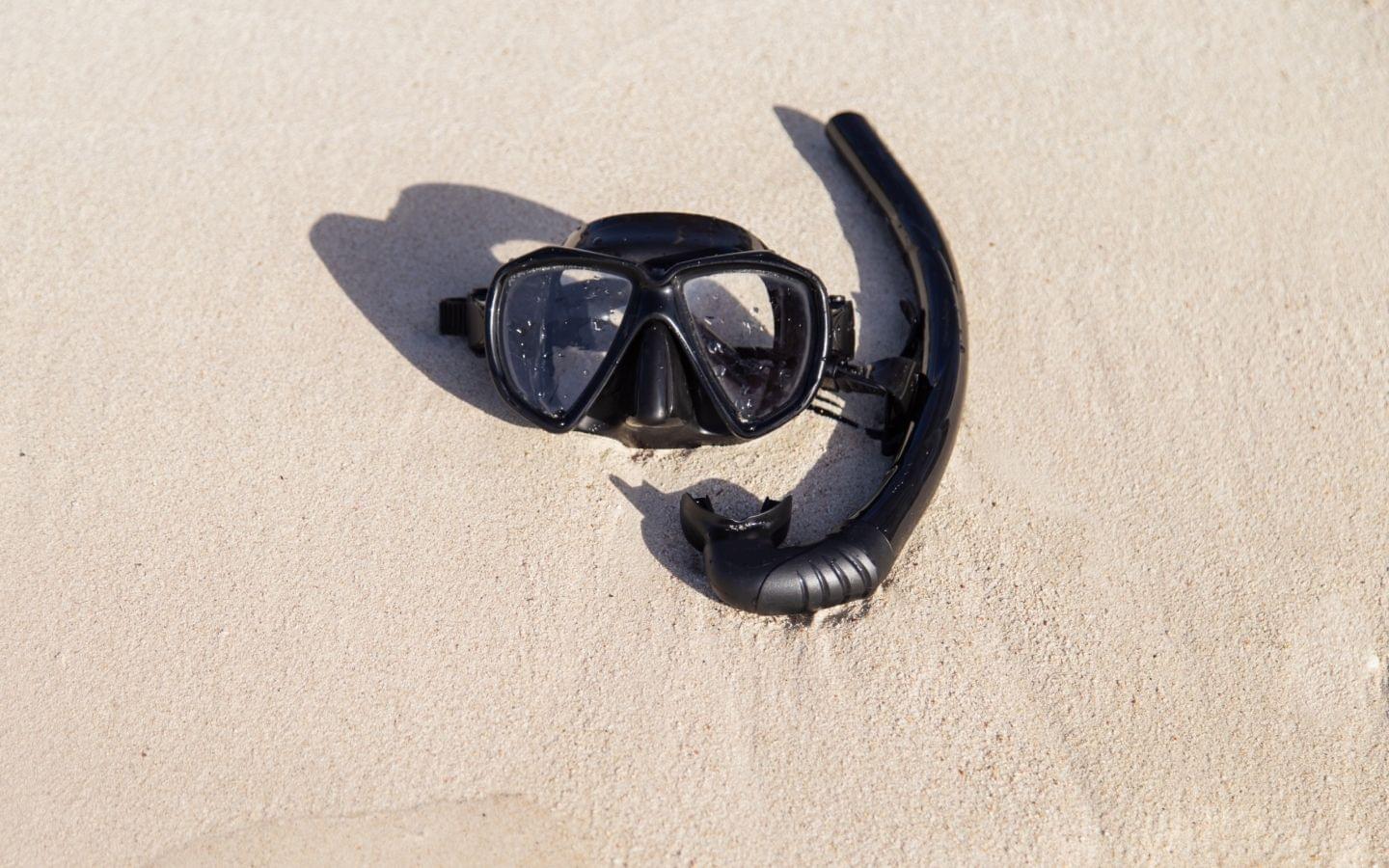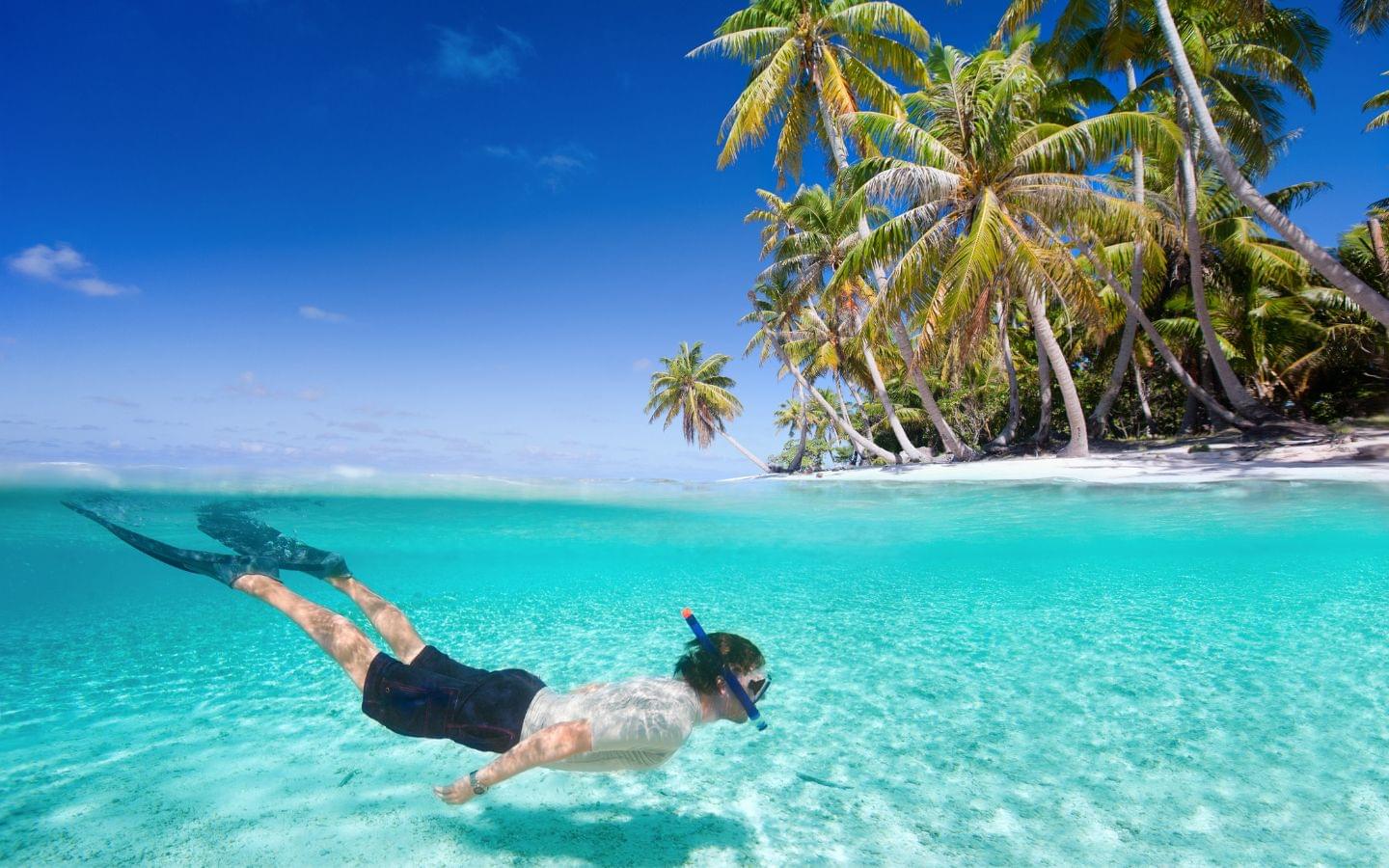How to snorkel with glasses
Planning a tropical vacation complete with snorkeling excursions is a lot of fun, but it can get more complicated for those with vision problems. If you find yourself asking how to snorkel with glasses, you are not alone.
According to the Vision Council of America, 75% of adults in the United States need some type of vision correction, and 64% wear eyeglasses.1 With such a large portion of the population needing spectacles, many people have wondered about snorkeling with glasses and how it will affect their view of fish, coral reefs, and other interesting marine life.
Fortunately, there are a variety of solutions that will help people who wear glasses make the most out of a snorkeling trip without having to worry about missing any of the excitement underwater.
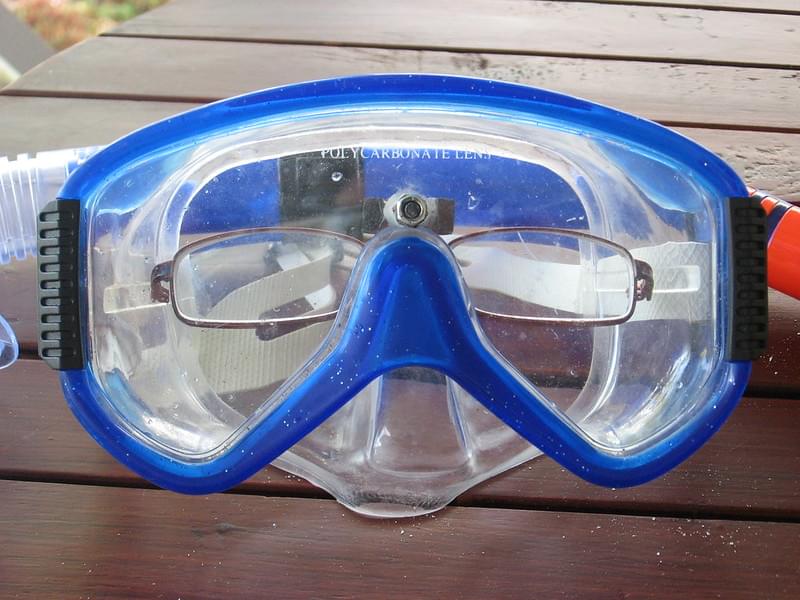
Snorkeling with glasses—is it possible?
Anyone who has attempted snorkeling with glasses can tell you that it doesn’t work out so well. From leaky masks to blurry vision, there are various issues that you’ll run into if you try it.
Snorkeling masks and swimming goggles do not fit well over glasses, and even a full face snorkel mask is not big enough to accommodate eyewear. While it might seem fine on land, once you get into the water, you’ll discover that the earpieces interfere with the seal on the snorkeling mask, causing it to leak.
Additionally, glasses are designed to sit a particular distance away from your eyes. Wearing them underneath a snorkeling mask may push the lenses closer or further away than intended, which could result in even worse vision than if you just skipped the glasses altogether.
While it’s not possible to wear glasses while snorkeling, people with vision problems can still enjoy this exciting activity without missing out on the beauty of the underwater world. Instead of wearing glasses, you can buy a prescription snorkel mask, DIY your own prescription mask, wear contact lenses, or rely on the water’s natural magnification.
Alternatives to snorkeling with glasses
Since it’s not realistic to snorkel while wearing glasses, let’s discuss the other options.
Natural magnification
Water magnifies objects below the surface. If you’re wearing a flat diving mask, snorkeling mask, or swimming goggles, underwater objects will appear 25% closer and 33% bigger than they actually are.2
If you have mild vision problems or wear prescription glasses between +1.00 and -1.00, you’ll probably be fine leaving the glasses behind, grabbing your snorkeling gear, and diving in.
Contact lenses
Contact lenses are an excellent, budget-friendly substitute for glasses. However, there are several things you’ll need to keep in mind when choosing contact lenses since some types are not suitable for snorkeling.
- Make sure to avoid hard contact lenses and gas permeable lenses, particularly if you plan on doing any freediving or scuba diving in addition to snorkeling. Water pressure builds as you dive deeper, and these types of lenses can become painful and cause blurry vision with the increased pressure. Soft contact lenses are the best option.
- Keep your eyes closed if water leaks inside of your mask or if you need to remove your mask underwater for any reason. Doing so will help prevent you from losing your lenses.
- Thoroughly rinse your eyes with clean water and disinfect your contact lenses after snorkeling to avoid irritation and reduce your risk of developing an eye infection.
- If you plan on snorkeling often, opt for disposable lenses. This way, you can easily replace your lenses if you happen to lose them. Bring a few extra pairs with you in case this occurs. Disposable lenses are an excellent choice for those prone to eye infections since wearers can discard them after snorkeling and replace them with a new pair.
- If you don’t already use contact lenses, consider making the switch before your snorkeling trip to give yourself plenty of time to get used to them.
- Before snorkeling with contact lenses, check with your eye doctor to see what they recommend based on your specific vision problems and health history.
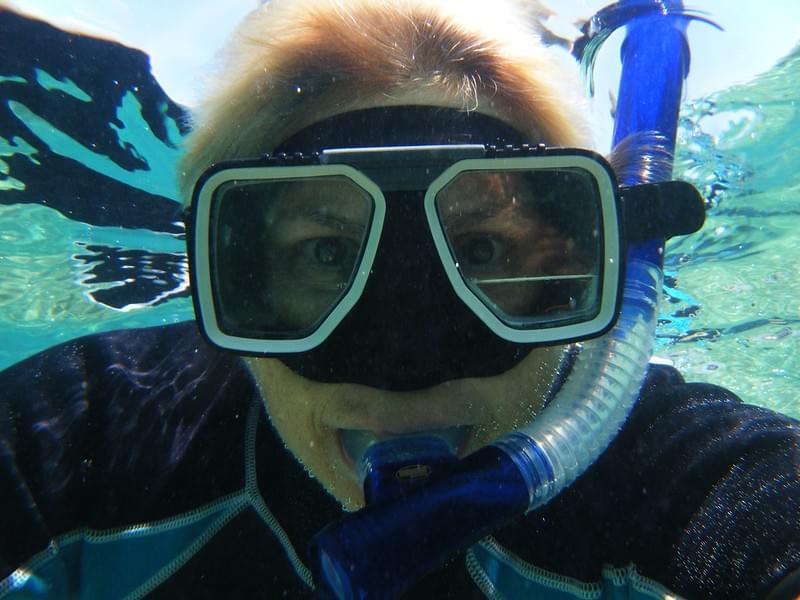
Prescription snorkel masks
If you’re uncomfortable with contact lenses or if you plan on snorkeling and diving often, a prescription mask is a great pick. These are either pre- or tailor-made snorkeling and scuba diving masks with built-in prescription lenses.
There are options available for people with nearsightedness, farsightedness, and astigmatism, as well as those who require bifocal lenses.
Prescription snorkel masks are one of the most expensive alternatives to glasses. Pre-made masks are slightly cheaper and are best for those with the same prescription in both eyes. If you have astigmatism or require different prescription strengths for each of your eyes, you’ll likely need a custom-made mask from a dive shop or an optician who specializes in prescription diving masks.
Pre-made dive masks with corrective lenses are typically available from -1.0 to -10.0 for nearsighted people and from +1.0 to +4.0 for farsighted people, with increments of 0.5.
In addition to dive shops, you can also order prescription masks from Amazon and other online stores. Before purchasing the mask, it’s wise to visit an optometrist to ensure you’re up-to-date on what prescription you need.
Prescription lenses
Many of the larger dive gear companies sell scuba masks with removable lenses made of plastic or tempered glass. Since you can easily replace these pop-in lenses, this is an excellent option for anyone who anticipates their prescription changing over time.
If your needs happen to change, you’ll save money by only having to purchase new lenses instead of the whole prescription mask.
Like pre-made masks, pop-in lenses are available in a range of prescription strengths in increments of 0.5. You can order these online or get them from a local dive shop or specialized optician.
Stick-on magnifier
For farsighted people who only wear reading glasses, a stick-on magnifier lens is a budget-friendly alternative to a prescription snorkel mask.
Popular among underwater photographers and scuba divers, these handy stick-on lenses can turn any mask into bifocals. The lenses will help you see camera settings and screens clearly while snorkeling without obstructing your view of the aquatic environment.
DIY snorkel mask
Not everyone can afford a specialty piece of snorkeling gear like a prescription snorkel mask. If you are only snorkeling while on vacation and are looking for a more economical solution, making your own snorkel mask is a great option.
For this project, you’ll need the following items:
- Anti-fog dive mask or snorkel mask
- An old pair of glasses
- Waterproof super glue safe for use on tempered glass or plastic
- Eyeglass screwdriver
Follow the steps below to create your own DIY snorkel mask:
- Unscrew and remove the earpieces from the old pair of glasses.
- Fit the glasses in the mask and try it on to make sure it’s comfortable. The frames should not push on the bridge of your nose or elsewhere on your face. Make sure the glasses don’t interfere with the mask’s seal.
- If the frame doesn’t fit inside, you can pop the lenses out and glue them directly onto the mask.
- Once you’ve found the right location for the glasses, use waterproof super glue to stick them to the inside of your mask.
Conclusion
While snorkeling with glasses presents some challenges, there are various solutions to help spectacled snorkelers experience all the joys of this underwater activity. The solution that’s best for you will depend on your eyesight, budget, and how much time you plan on snorkeling and diving.
References
-
Kian, Meena. “A Change in Worldview: Vision Correction Explained.” Saltman Quarterly, UC San Diego, 1 June 2020, sqonline.ucsd.edu. ↩
-
Adolfson, John and Berghage, T. Perception and Performance Under Water. John Wiley & Sons, 1974. psycnet.apa.org. ↩
Last updated 29 June 2021
